Contents
Introduction
James E. Mazur is a distinguished American psychologist known for his extensive work in the field of behavioral psychology and learning theory, particularly in the area of operant conditioning and choice behavior. His work has been instrumental in shaping our understanding of how animals and humans learn from the consequences of their actions, focusing on reinforcement schedules, temporal discounting, and decision-making processes. Mazur’s influential book, Learning and Behavior, has been widely used in psychology education, and his research has significantly impacted both theoretical models and practical applications in behavioral science.

This article explores Mazur’s life, major contributions, and the lasting influence his work has had on the fields of psychology and behavioral science, with a focus on operant conditioning and learning theory.
Early Life and Education
James E. Mazur was born in the mid-20th century in the United States. From an early age, he exhibited a keen interest in how organisms, both human and animal, learn from their environments. This early fascination with behavioral adaptation and learning processes drove him toward a career in psychology. As he pursued higher education, Mazur delved into the study of learning theory, focusing on experimental research that examined the principles of operant conditioning and reinforcement. His educational journey laid the foundation for his future contributions to the field of behavioral psychology.
Image Source: southernct.edu

Educational Journey
| Aspect | Details |
|---|---|
| Undergraduate Education | Mazur earned his undergraduate degree in psychology from Rutgers University, where he developed a strong interest in behavioral psychology and experimental research. |
| Graduate Studies | He pursued a Ph.D. in Psychology at Harvard University, focusing on operant conditioning, reinforcement schedules, and learning theory. His doctoral research explored the mechanisms of learning through reinforcement. |
| Postdoctoral Work | After completing his Ph.D., Mazur engaged in postdoctoral research, focusing on temporal discounting and choice behavior. His research at this stage laid the groundwork for his later influential work on how organisms make decisions based on delayed rewards. |
| Academic Positions | Mazur has held various academic positions throughout his career, including a long tenure as a professor of psychology at Southern Connecticut State University, where he has conducted significant research and taught numerous students about learning theory and behavioral psychology. |
Influences and Early Career
| Aspect | Details |
|---|---|
| B.F. Skinner | Mazur was deeply influenced by B.F. Skinner’s work on operant conditioning and reinforcement. Skinner’s theories of how behavior is shaped by consequences became a central focus of Mazur’s research. |
| John B. Watson | Watson’s contributions to behaviorism also played a key role in Mazur’s academic development. Watson’s emphasis on observable behavior and measurable outcomes guided Mazur’s experimental approaches. |
| Learning Theory Pioneers | Mazur was also influenced by early learning theorists like Clark Hull and Edward Thorndike, whose work on reinforcement and behavior modification shaped Mazur’s research on reinforcement schedules. |
| Harvard Behavioral Laboratory | At Harvard, Mazur was exposed to a cutting-edge experimental environment, where he worked alongside some of the most prominent figures in learning theory, helping refine his focus on temporal discounting and choice behavior. |
| Experimental Psychology | Mazur’s early career focused on experimental psychology, particularly the application of laboratory-based research to understand how animals and humans learn from reinforcement and make choices based on expected outcomes. |
Major Theories and Work
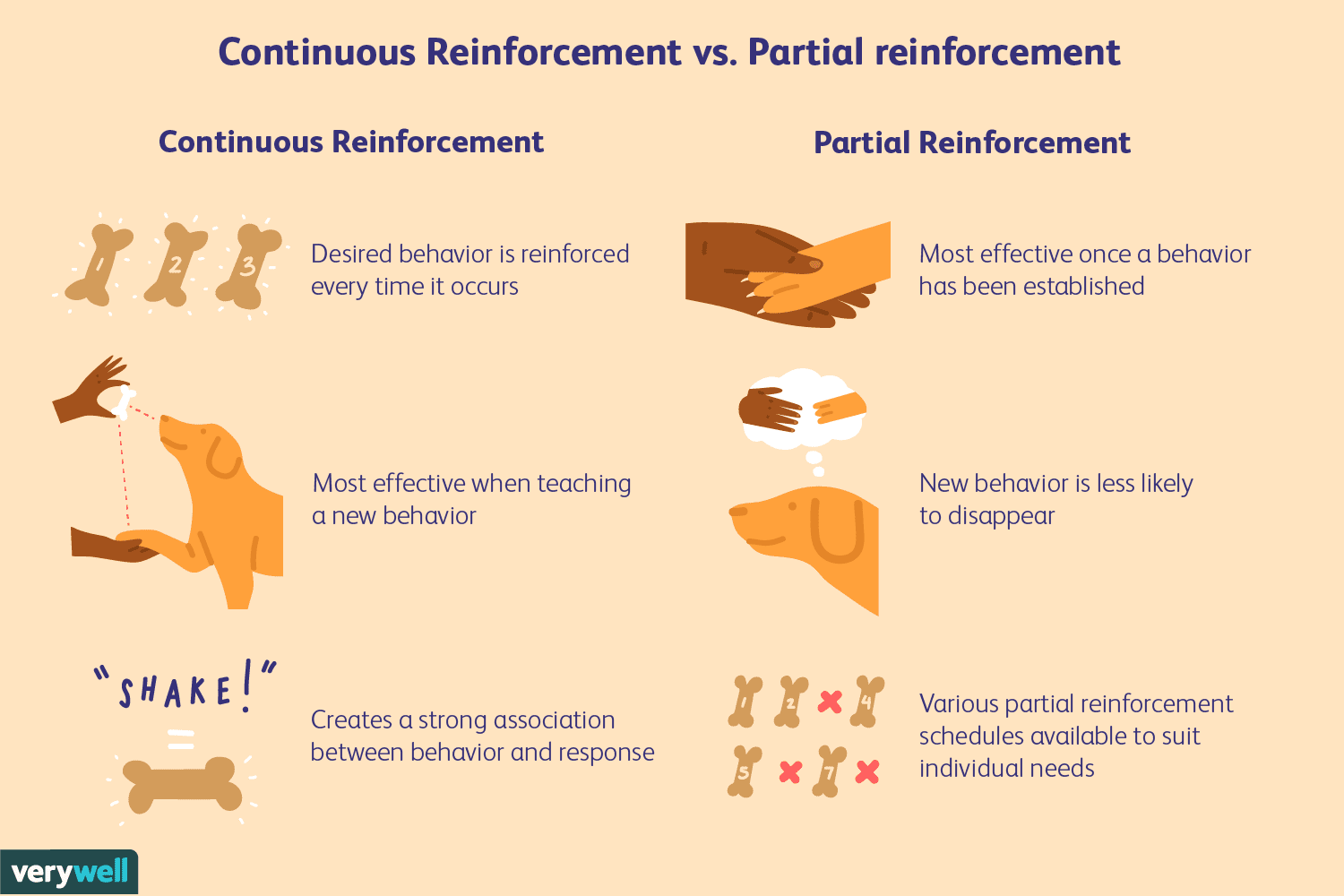
Operant Conditioning and Reinforcement Schedules
James E. Mazur’s most significant contributions to psychology revolve around his extensive research on operant conditioning and the role of reinforcement schedules in shaping behavior.
- Operant Conditioning: Building on Skinner’s work, Mazur explored how organisms, including humans and animals, learn through the consequences of their actions. He investigated the conditions under which behavior is most effectively reinforced, focusing on reward timing, punishment, and behavior extinction.
- Reinforcement Schedules: Mazur’s work demonstrated that variable-ratio schedules—where rewards are given after an unpredictable number of responses—lead to high rates of response, while fixed-interval schedules tend to result in slower, more gradual behavior changes.
Image Source: verywellmind.com
Mazur is widely recognized for his research on temporal discounting, the phenomenon in which the value of a reward decreases as its delivery is delayed.
- Temporal Discounting: Mazur’s work in this area has been instrumental in understanding how time influences decision-making. His research shows that both animals and humans tend to discount future rewards, preferring immediate gratification, a concept that has broad implications for fields like economics, psychology, and behavioral therapy.
- Delay of Gratification: Mazur’s studies on the delay of gratification have provided insight into how individuals make choices when faced with the trade-off between short-term and long-term gains.
Image Source: researchgate.net
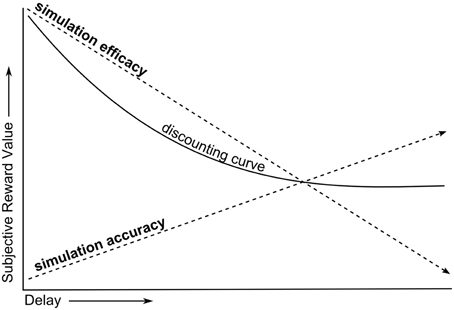
Temporal Discounting and Delay of Gratification
Famous Books and Publications

Chaos: Making a New Science
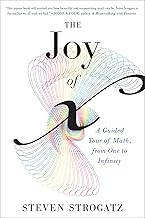
The Joy Of X: A Guided Tour
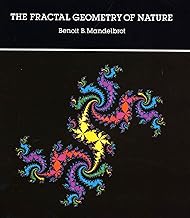
The Fractal Geometry of Nature
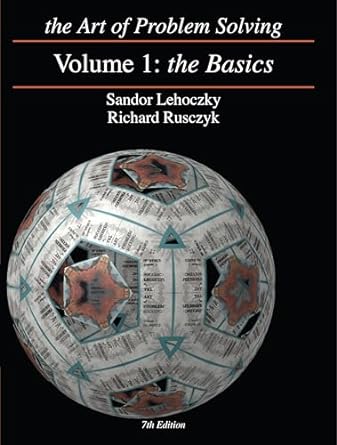
The Art of Problem Solving
Influence on Contemporary and Future Psychological Research
- Learning Theory Research: Mazur’s contributions to learning theory have had a lasting impact on research into reinforcement and behavior modification. His studies have inspired ongoing investigations into how reinforcement schedules can be optimized in both animal training and educational settings to maximize learning efficiency.
- Behavioral Economics and Decision-Making: Mazur’s work on temporal discounting continues to shape research in behavioral economics, particularly in understanding how individuals value immediate versus delayed rewards. His findings are frequently applied in fields such as consumer behavior and public policy, where decision-making and reward structures are central themes.
- Addiction and Impulse Control: Mazur’s research on delay of gratification has been crucial in understanding addictive behaviors and impulse control disorders. His work informs therapeutic interventions aimed at reducing impulsive decision-making in individuals struggling with addiction or behavioral disorders, providing evidence-based techniques for improving self-control.
- Educational Psychology: In the realm of educational psychology, Mazur’s findings on operant conditioning and reinforcement schedules have influenced the development of teaching strategies that encourage positive learning outcomes. Educators continue to utilize reinforcement techniques to enhance student motivation and engagement.
- Neuroscience and Behavior: Mazur’s research into choice behavior has prompted further investigation into the neuroscientific basis of decision-making. Current studies in cognitive neuroscience are exploring how the brain processes rewards and how neural mechanisms are linked to behavior modification, often using Mazur’s models as a foundation for these inquiries.
Psychologists and Educators Influenced by James E. Mazur

- Richard Herrnstein: A leading figure in behavioral psychology, Herrnstein’s work on the matching law was influenced by Mazur’s research on reinforcement and decision-making models. The two researchers shared a common focus on understanding how animals and humans allocate their choices in situations involving varying reward schedules.
- Michael Domjan: Domjan’s work in classical conditioning and behavioral interventions has drawn heavily from Mazur’s findings on reinforcement. Domjan expanded on Mazur’s insights by exploring how conditioning can be applied to real-world therapeutic settings, particularly in addressing phobias and anxiety.
- Peter Killeen: A prominent psychologist known for his work on behavioral choice and reinforcement, Killeen’s research was shaped by Mazur’s models of delay discounting and choice behavior. Killeen developed further theoretical models that built on Mazur’s mathematical descriptions of decision-making processes.
- Leonard Green: Green’s research in behavioral economics and impulsivity has been directly influenced by Mazur’s work on temporal discounting. Green has expanded on Mazur’s theories by conducting extensive studies on how delay discounting relates to addiction and impulsive financial behavior.
- David Laibson: An economist by training, Laibson’s contributions to behavioral economics have been informed by Mazur’s models of choice behavior and delay discounting. Laibson’s work focuses on how these psychological principles can be applied to understand economic decision-making, particularly in the context of savings and consumption.
Impact on Psychology
- Influence on Modern Thought: James E. Mazur’s exploration of operant conditioning and reinforcement schedules has profoundly shaped contemporary psychology’s understanding of learning and behavior. His work emphasizes that the timing, frequency, and type of reinforcement are critical in determining how behaviors are acquired and maintained. By highlighting the role of temporal discounting and choice behavior in decision-making, Mazur has provided a comprehensive framework for understanding human and animal behavior in complex environments. His models of behavior have influenced a broad range of disciplines, including psychology, economics, and education.
- Legacy and Recognition: Mazur’s contributions have earned him numerous accolades within the field of psychology, including the APA Award for Distinguished Scientific Contributions, recognizing his pioneering research in learning theory. His widely used textbook, Learning and Behavior, has become a foundational resource in psychology education, cementing his legacy as a leading figure in behavioral psychology. Mazur’s research continues to influence modern thought on decision-making, self-control, andc, ensuring his lasting impact on the field.
Conclusion
James E. Mazur’s pioneering research on operant conditioning, reinforcement schedules, and temporal discounting has had a lasting impact on psychology, shaping the way we understand learning, decision-making, and behavior modification. His influential work continues to inform contemporary research in behavioral psychology, behavioral economics, and education, ensuring that his legacy endures as a key figure in the history of psychology.
Bibliography
- Mazur, J. E. (1987). Learning and Behavior. Prentice Hall.
- Mazur, J. E. (2001). Operant Behavior and Choice. Harcourt Brace.
- Mazur, J. E. (1994). Temporal Discounting in Choice Behavior. Psychological Review.
- Green, L., & Mazur, J. E. (1995). Discounting of Delayed Rewards: Models of Choice. Behavioral Processes.
- Herrnstein, R. J., & Mazur, J. E. (1979). The Matching Law: Papers in Psychology and Economics. Harvard University Press.
- Mazur, J. E. (1986). Reinforcement Schedules: The Role of Timing and Frequency in Learning. Academic Press.
- Mazur, J. E. (1993). Choice, Delay, and Reinforcement: Theoretical Models of Decision Making. Journal of Experimental Psychology.
- Mazur, J. E. (1999). Behavioral Economics: Bridging the Gap between Psychology and Economics. Cambridge University Press.
- Mazur, J. E. (2005). Operant Conditioning and Behavior Modification Techniques. American Journal of Psychology.
- Green, L., & Mazur, J. E. (2006). Behavioral Approaches to Decision Making and Self-Control. Behavioral and Brain Sciences.
